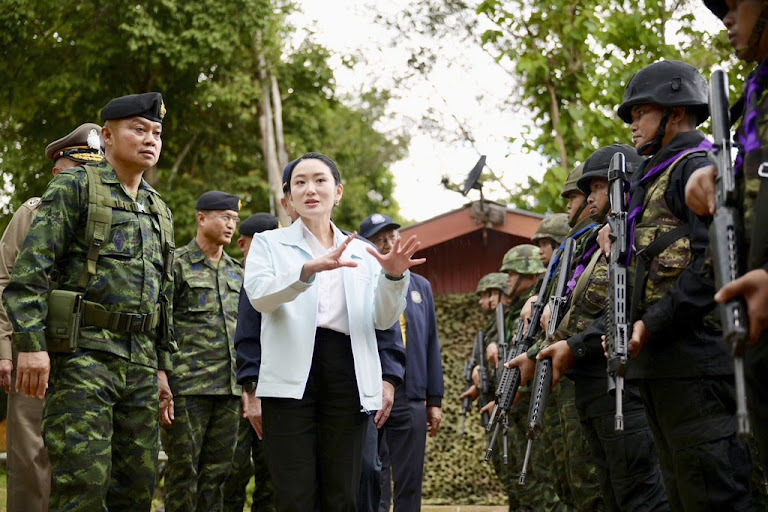Thailand’s Crisis Deepens: Coup and Conflict Threaten Democracy
Leaked audio, military action, and ultranationalism threaten Thailand’s fragile democracy, raising fears of coups and international conflict with Cambodia.

The situation unfolding in Thailand isn’t just a political squabble; it’s a complex interplay of personal rivalries, ultranationalist sentiments, fragile democratic institutions, and fraught international relations. The question isn’t simply whether Prime Minister Paetongtarn Shinawatra can weather the storm, but whether Thailand’s democratic system itself can survive this confluence of crises. This is a moment of profound instability, where decades of progress could be erased in a matter of weeks.
The core of the immediate crisis stems from the controversial leaked audio clip featuring Prime Minister Shinawatra and former Cambodian Prime Minister Hun Sen. The perceived impropriety of the conversation, framed as Shinawatra “begging” for assistance and potentially betraying the trust of the Thai military, has ignited a firestorm. The withdrawal of the Bhumjai Thai Party from the coalition further weakens the government, leaving Shinawatra in an increasingly untenable position.
Beyond the immediate political drama, however, lies a deeper systemic problem: the enduring tension between civilian governance and the military, coupled with the volatile force of Thai ultranationalism. The fact that a frontline army commander, Lt Gen Boonsin Padklang, felt empowered to unilaterally close border checkpoints, as opposed to announcements being made by the Cambodian Prime Minister, speaks volumes about the balance of power—or, more accurately, the imbalance. The response of both nations has quickly damaged both of their economies, with traders and farmers facing significant setbacks.
Here’s a breakdown of the critical elements contributing to this crisis:
- Erosion of Public Trust: The leaked audio clip has severely damaged public confidence in Prime Minister Shinawatra and her administration. Whether the content was truly damning or simply perceived as such, the damage is done.
- Military Assertiveness: The military’s willingness to act independently on the border issue highlights the limits of civilian control and raises fears of further intervention in political affairs. The closure of borders by Boonsin has only contributed to further unrest.
- Rise of Ultranationalism: Ultranationalist groups, fueled by anti-Thaksin sentiments and border disputes with Cambodia, are actively seeking to destabilize the government, pushing for a more aggressive stance.
- Economic Consequences: Border closures and trade restrictions, such as those described in this analysis, are hurting both the Thai and Cambodian economies, exacerbating tensions and potentially leading to further unrest.
Ultimately, the current crisis in Thailand isn’t about Paetongtarn Shinawatra’s fate; it’s about the future of Thai democracy and the necessity of de-escalating a dangerous international conflict. The petty bickering about who started the problems in the first place is completely irrelevant; we need immediate action to prevent further conflict and protect the democratic system.
The crucial question now is whether cooler heads can prevail. As the article points out, focusing solely on Shinawatra’s survival misses the bigger picture. Prioritizing the preservation of democratic institutions and preventing further escalation of the Thai-Cambodian conflict are paramount. Otherwise, Thailand risks not only a return to military rule but also a potentially destabilizing conflict with its neighbor. That is an outcome no one, inside or outside Thailand, should want.









